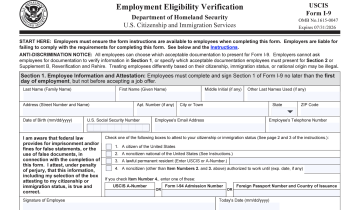Several states have amended and passed new laws effective January 1, 2025. The summary below is not all-inclusive but presents an overview of those that may impact many employers.
NEW MINIMUM WAGE RATES: January 1 is a common date for minimum wage rates to change. See MRA’s resource for 2025 Minimum Wage Requirements.
ILLINOIS
Amendments to the Illinois Equal Pay Act: All public and private employers with 15 or more employees must provide pay scale and benefit information on all postings for open positions. These requirements apply to any job that will be performed within the state of Illinois, either in whole or in part. These requirements extend to any third-party agency used by the employer. Additionally, employers are required to make current employees aware of all promotion opportunities at least 14 days after the external posting is listed. Employers are required to maintain records of the pay scale and benefits information for a period of at least five years.
Amendments to the Illinois Human Rights Act: Several amendments to the Illinois Human Rights Act (IHRA) become effective January 1, 2025. The Amendments provide protections for an employee based on family responsibilities (defined as providing care or being perceived as providing care, to a family member (either currently, in the past, or future). The definition of family members includes an employee’s child, stepchild, spouse, domestic partner, sibling, parent, grandchild, and father- and mother-in-law, grandparent, or stepparent.
A second amendment to the Act adds protections for employees based on their reproductive health decisions related to the use of contraceptives, fertility, or sterilization care, assisted reproductive technologies; miscarriage management care; health care related to the continuation or termination of pregnancy; or prenatal, intranatal, or postnatal care.
Finally, the deadline for filing an administrative charge with the Illinois Department of Human Rights based on employment discrimination, harassment, or retaliation increased from 300 days to 2 years.
Amendment to the Illinois Personnel Records Review Act: The amendment clarifies requirements for both employees and employers.
Employees must:
- Make a written request, at reasonable intervals (inclusive of emails and text message requests), to the person(s) or department in charge of maintaining employee files, as identified in the company’s policy.
- Identify the specific personnel records they are requesting, or if they are requesting all records. Additionally, the employee must state whether they are requesting to inspect, copy, or receive copies of the file.
- Specify the form in which they wish to receive the files—paper copies or electronically.
- If the records include medical information/records, include a signed waiver to release the information to the employee’s designated representative.
Provided the employee or former employee meets the requirements above, employers are required to provide the employee with the documents within seven days. Employers must:
- Provide any documents intended to be used or used for determining the employee’s qualifications for employment, promotion/demotion, compensation, benefits, disciplinary action, or discharge.
- Provide any employment-related documents or contracts that the employer believes are legally binding.
- Include copies of all handbooks the employee has acknowledged during the course of their employment.
- Provide copies of all policies or procedures the employee was subject to during their employment.
The Act clarifies that employees and former employees are limited to two requests in a calendar year.
Amendment to the Illinois Wage Payment and Collection Act (IWPCA): The IWPCA has been amended to clarify the definition of a “paystub” as a document that reflects the employee’s hours worked, overtime hours worked, total wages earned, total deductions, and rate of pay during the pay period. The paystub must also reflect year-to-date wages and deductions. Other state, county, or municipal requirements related to listing paid time off earned and used were not affected by this amendment.
Employers are also required to maintain these records for a period of at least three years after the date of payment and provide copies to former employees upon request. Additionally, employers must offer to provide a separated employee with a record of all paystubs from one year prior to the separation date.
Amendment to the Right to Privacy in the Workplace Act: Unlike an earlier version of the Amendment which prohibited employers from voluntarily enrolling in E-Verify or similar verification systems, the final version urges employers to consult the Illinois Department of Labor’s website for current information on the accuracy of these programs and to review and understand their legal responsibilities related to their use.
The amendment also provides additional rights and protections to an employee following the notification from the Social Security Administration of a discrepancy.
Additionally, employers are to provide notice to current employees, by posting in the language the employer normally uses to communicate employment-related information to the employee, of any inspections of I-9 Employment Eligibility Verification forms or other employment records conducted by the inspecting entity within 72 hours after receiving notice of the inspection.
Employers that participate in E-Verify must post the Right to Privacy in the Workplace/E-Verify poster, along with the E-Verify Participation poster provided by the federal government, in the workplace, and this poster produced by the United States Department of Justice. The posters must be displayed in both English and Spanish.
NEW Child Labor Law of 2024: This new law sets standards for working conditions for children age 15 and younger, including limiting hours of work and updates the list of jobs in which minors may not work. It requires work permits to be approved by both the minor’s parent or guardian and a review of the work to be performed by school officials.
NEW Worker Freedom of Speech Act: Codifies that employers cannot discharge, discipline, or otherwise penalize employees who do not participate in “captive audience” meetings where the employer communicates its opinions on religious or political matters (including the decision to join or support a labor union).
COOK COUNTY, ILLINOIS
Cook County Paid Leave of Absence Ordinance: Cook County’s Paid Leave of Absence Ordinance requires employers to provide one hour of paid leave for every 40 hours worked, up to 40 hours, in a 12-month period. Unused accrued time must be carried over into the next 12-month period. Front-loaded plans do not require carryover.
The amendments make several changes and clarifications.
- As the Paid Leave can be used for any reason, the previous references to “FMLA Restricted Paid Leave” have been removed.
- Paid Leave will continue to accrue when the employee uses available Paid Leave.
- Wages earned related to the use of Paid Leave must be included in the employee’s regular paycheck.
- Mandates that employer policies/notices related to the use of paid leave be communicated in writing. These policies/notices must include information related to when and how an employer may deny a request for paid leave. A written policy must be distributed to employees at the start of employment and annually thereafter. The Amendment also details the requirements for an employer’s policy.
- Employers may now require an employee to use Paid Leave prior to taking unpaid FMLA.
- The amendments specify the information the Workplace Poster must contain (samples can be found on the Cook County website), where it must be posted for businesses within the geographic boundaries of the county), and how it is to be distributed to remote employees.
MINNESOTA
Earned Sick and Safe Time (ESST): Effective on January 1, 2025, all employer-provided personal illness or injury paid leave will be converted into ESST time even if the paid leave extends beyond the 48 or 80 hours required under the law. Here is the text of the amendment:
- “…All paid time off and other paid leave made available to an employee by an employer in excess of the minimum amount required in section 181.9446 for absences from work due to personal illness or injury, but not including short-term or long-term disability or other salary continuation benefits, must meet or exceed the minimum standards and requirements provided in sections 181.9445 to 181.9448, except for section 181.9446. For paid leave accrued prior to January 1, 2024, for absences from work due to personal illness or injury, an employer may require an employee who uses such leave to follow the written notice and documentation requirements in the employer’s applicable policy or applicable collective bargaining agreement as of December 31, 2023, in lieu of the requirements of section 181.9447, subdivisions 2 and 3, provided that an employer does not require an employee to use leave accrued on or after January 1, 2024, before using leave accrued prior to that date.”
Job Postings: The new pay transparency law requires employers with 30 or more employees within the state to include a salary range, or a good faith estimate of a range, in each job posting as well as a description of all benefits and other compensation. The information must be included in postings made by the employer or third parties acting on their behalf. Employers who do not offer a salary range must list a fixed rate. Open-ended ranges are prohibited.
State and local legislation is keeping some employers up at night. MRA’s 24/7 Hotline is always ready to help with your questions. Contact us at [email protected] or 866.474.6854.
Need a more in-depth look at what’s changing? Join us for the Employment Law Update on February 20.







